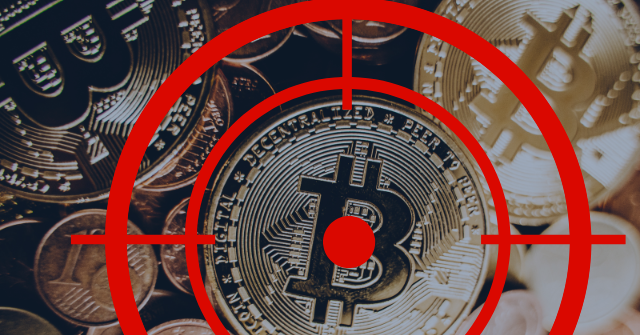The following article is sponsored by Public Policy Solutions and authored by John Czwartacki, a principal at Public Policy Solutions.
As someone who served in the Trump administration at the Consumer Financial Protection Bureau (CFPB), I watched firsthand how conservative leadership could streamline government, protect consumers, and spark innovation. They embraced financial technology and saw clearly how consumer choice was preferable to government overreach, and they’ve largely continued to follow that in his second term – with one primary exception.
I’m concerned by reports that the Trump CFPB may consider vacating Rule 1033—an open banking rule that we began development of during President Trump’s first term – which is critical to delivering on one of President Trump’s boldest economic goals: making America the crypto capital of the world.
Let me be clear: I believe that rolling back the open banking rule could be a tragic misstep that risks undermining U.S. leadership in financial technology and cryptocurrency innovation.
Rule 1033, proposed under the Dodd-Frank Act, is the engine behind open banking. It empowers consumers to access their financial data and use it with the tools and platforms they choose. It levels the playing field between entrenched financial institutions and the disruptive startups bringing more choice, lower fees, and faster innovation to market—including crypto platforms.
During the pandemic, when legacy financial institutions threw up barriers—shutting branches, freezing accounts, and gatekeeping relief funds—millions turned to digital platforms and decentralized finance. Crypto offered financial freedom at a time when banks offered red tape. For the unbanked, underbanked, and digitally native, crypto wasn’t a trend—it was a necessity. This is a major reason cryptocurrency has found so much support in President Trump’s MAGA movement.
Yet nearly every crypto platform still relies on traditional banks to on-ramp user funds. That dependency puts the entire ecosystem at risk. Without the protection of Rule 1033, banks could throttle data access, limit transaction speeds, or flat-out block connections—stifling competition and innovation. The same institutions that crypto seeks to challenge would be handed the keys to the gate, and greater control over users who just want to use the financial tools and institutions they like. This is less a tug-of-war between big banks and fintech, and more a debate between big banks and consumers who simply want the freedom to move their own data where they like.
Back in May, we saw a major Wall Street overreaction to tariffs. Sell-offs, doom and gloom, every banker telling media contacts the American economy was collapsing. That knee-jerk reaction was a mistake, and this banker wish list request to pull out of 1033 is as well.
President Trump has voiced support for making America the global hub for cryptocurrency and financial freedom. Undoing Rule 1033 would undercut that goal and hand a win to legacy banking giants who fear competition, not to mention foreign governments racing to overtake us in blockchain innovation.
I understand skepticism about regulation. But Rule 1033 isn’t about red tape—it’s about unleashing the power of free markets and informed consumers and simplifying the red tape nightmare of Dodd Frank. It ensures that fintech firms and crypto platforms can compete, grow, and give Americans better options than the one-size-fits-all model of yesterday’s banking.
This isn’t the first time we have seen this dynamic at play. In the 1970’s, “Ma Bell” (AT&T corporation, before it was broken up) held a tight hold over the telecom industry and phone technology and wanted to solely focus on landlines. Even as Motorola had developed the first hand-held mobile phone in 1973, AT&T used their power to slow development and strangle access to networks, leading to a decade in unnecessary delay before commercial mobile phones hit the markets and made lives easier. Today, Wall Street bankers are following in AT&T’s footsteps. Wall Street banks can’t be allowed to use regulatory capture to snuff out innovation on the vine. Consumer choice, breeding options so walled gardens can’t be built to keep better solutions out and customers in.
President Trump’s economic vision has always been about unleashing American potential. So much of his agenda has focused on reversing Biden actions that put political agendas and special interests over the good of the American people. Let’s not stall that momentum now. Preserving and implementing Rule 1033 is the conservative, pro-competition, pro-crypto path forward.
John Czwartacki is a former senior advisor at the CFPB and co-founder and principal at Public Policy Solutions, a 501c(4) nonprofit organization.
Read the full article here


